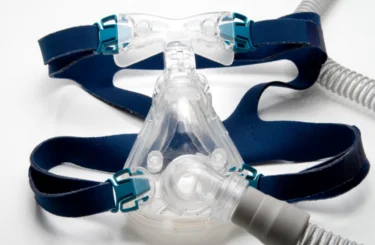
Not Just Cars: Facts and Figures About Truck and Motorcycle Accidents
Most vehicles on the road are of the four-wheel variety. It’s no surprise then that the vast majority of motor vehicle accidents, injuries, and fatalities on our streets and highways involve passenger vehicles. But cars share the road with hundreds of thousands of other vehicles on 18 wheels and bikes on two. And while trucks and motorcycles may be outnumbered by cars, the sheer size and power of massive tractor-trailers and the vulnerability of exposed bikers mean that the seriousness of injuries and frequency of deaths is significantly greater in truck and motorcycle accidents than for car accidents.
Every serious injury or loss of life in a car, motorcycle, or truck accident is a tragedy. Each victim and family face pain and struggles that aren’t reflected in numbers, charts, or statistics. But the facts and figures about truck and motorcycle accidents do shed light on the severity and scope of the dangers.
Truck Accident Statistics
The same federal agency charged with establishing and enforcing safety rules for large trucks – the Federal Motor Carrier Safety Administration (FMCSA) – also keeps tabs on what happens when those rules are violated, or any of the over 11 million trucks in the U.S. are otherwise involved in accidents.
The FMCSA’s latest report reveals that accidents involving big rigs wreak havoc on a daily basis:
- In 2016, there were approximately 475,000 reported crashes involving large trucks. That’s an average of 1,300 truck crashes per day.
- 3,864 (0.8 percent) of those crashes involved fatalities while 104,000 (22 percent) led to injuries.
- 61 people died in truck accidents in Michigan in 2016.
The most common causes of truck accidents, according to the FMCSA, include:
- Overloaded tractor-trailers.
- Hours of service violations.
- Driver distraction.
- Drug and alcohol abuse.
- Defective equipment, such as brakes and tires.
- Unlicensed and untrained drivers.
- Falsified log records.
- Failure to inspect and maintain equipment.
- Road rage.
Motorcycle Accident Statistics
As noted, motorcycle riders are significantly more likely to die in an accident than the occupants of the passenger cars with whom they share the road; 29 times more likely. This is reflected in the fact that although motorcycles comprise just 3 percent of all registered vehicles in the U.S., bikers made up more than 13 percent of all traffic fatalities in 2016. According to the National Highway Traffic Safety Administration, 5,286 motorcyclists were killed and over 100,000 more were injured on U.S. roads and highways that year, a 5.1 percent increase from 2015.
In May 2018, the Governors Highway Safety Association released its latest report on motorcycle accidents and fatalities. It revealed that:
- In Michigan, there were 152 motorcycle-related fatalities in 2016 and an estimated 142 deaths in 2017.
- In 2016, motorcycles were more frequently involved in fatal collisions with fixed objects than other vehicle types.
- 1,859 lives were saved in 2016 because motorcyclists involved in crashes were wearing helmets. If all riders had worn helmets, an additional 802 lives could have been saved.
- The average age of motorcyclists killed across the country in 2016 was 43 years old.
- Twenty-five percent of motorcycle riders involved in fatal crashes in 2016 were under the influence of alcohol, the highest percentage among all vehicle types.
Speak With a Michigan Personal Injury Lawyer Today
The team of experienced Michigan personal injury attorneys at Sommers Schwartz are familiar with the complex web of rules, regulations, and legal principles that govern accidents involving truck drivers and trucking companies. We also know the challenges bikers face when seeking to hold others responsible for their injuries. Our courtroom acumen and fierce determination have led to the recovery of millions of dollars for our injured clients and their families.
If you have been injured or lost a loved one in a truck accident or motorcycle accident, please contact us today to arrange for your free initial consultation.
Matthew Curtis
Matthew Curtis is a senior shareholder and member of the Board of Directors at Sommers Schwartz, P.C. For the past 30 years, he has successfully litigated complex personal injury and medical malpractice cases throughout Michigan, and across the United States.





